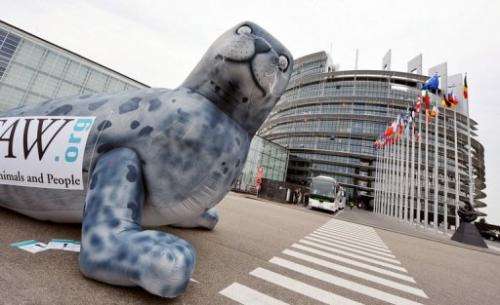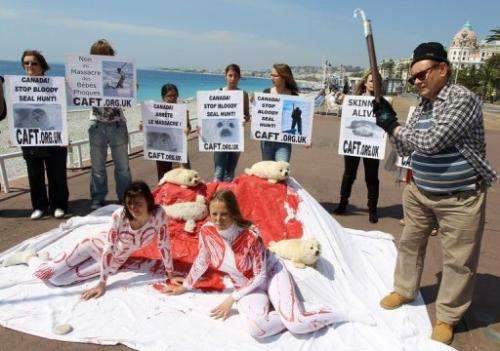EU court maintains seal fur ban

An EU court in a much-anticipated ruling Thursday upheld a 2010 ban on seal products, throwing out an appeal by fur traders including native Inuit from Canada and Greenland, and Scottish sporran-makers.
The Luxembourg-based EU General Court said EU law already protects the interests of Inuit communities which hunt seals "as an integral part of their culture and identity" by authorising the sale of seal products that "result from hunts traditionally conducted by such indigenous communities for the purpose of their subsistence".
As such, it rejected a campaign led by Canada to lift the ban on the trade in seal fur and products which was joined by the country's largest Inuit group as well as by Scottish suppliers of the sporran pouch made of seal pelt that is part of traditional Highland dress.
"The General Court dismisses the action," a statement said. "The General Court confirms the validity of the regulation on the marketing of seal products."
The ban has been highly effective in reducing the number of seals killed commercially, with 40,000 in 2011 against 354,000 in 2006. Likewise the price of a pelt has dropped from about 90 euros ($118) to nine euros in the same period.

However, the governments of Canada and Norway have mounted a separate legal challenge to the EU ban via the World Trade Organization.
The animal rights group the International Fund for Animal Welfare (IFAW) welcomed Thursday's court decision.
"The commercial seal hunt is a vestige of the 19th century. The inherent cruelty of commercially hunting seals is neither acceptable or necessary," said IFAW's Sonja Van Tichelen.
She said the next step was for the WTO to recognise the validity of the EU seal trade ban.
A second WTO hearing of the challenge by Norway and Canada to the EU seal trade regulation is scheduled for Monday and Tuesday in Geneva but no decision is expected in the short term.
In a joint statement, Canada's minister for the Arctic, Leona Aglukkaq, and Fisheries Minister Keith Ashfield called the ban "a political decision that has no basis in fact or science," and vowed to continue fighting for "our legitimate commercial seal harvest."
Seals, they said, provide traditional sustenance for many coastal Canadians, and jobs for many families in rural areas.
Moreover they said seal populations in Canada have grown five to 70 times since the 1970s, depending on the herd, and the hunt is "well-regulated" and "humane".
"We firmly believe this ban is contrary to the EU's World Trade Organization obligations and will continue to defend Canadian interests in this regard on the world stage," Aglukkaq and Ashfield concluded.
(c) 2013 AFP
















